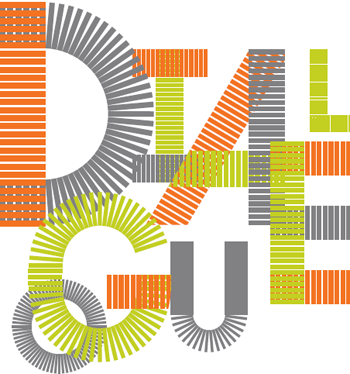Engineers and Linguists Join Dialogue Again
 In early June, in the Bekasovo Region near Moscow, an international conference on computer linguistics “Dialogue” was held , which our company has been doing for many years. What “Dialogue” is, we wrote here , so we will not repeat ourselves, but will tell you what was new.
In early June, in the Bekasovo Region near Moscow, an international conference on computer linguistics “Dialogue” was held , which our company has been doing for many years. What “Dialogue” is, we wrote here , so we will not repeat ourselves, but will tell you what was new. Perhaps one of the most important events for us - the collection of scientific works of the Dialogue will finally be indexed by SCOPUS, the largest international citation system. This system is not just an index of scientific articles, it is a kind of authoritative confirmation of the scientific significance of the publication included in SCOPUS. Why is it important? To confirm their status, all scientists must have a set of publications in recognized authoritative publications. Moreover, to confirm their own scientific authority abroad and promote their own ideas and developments, it is important to have publications in sources that are recognized precisely by international indices, such as SCOPUS. In addition, by entering SCOPUS, publications automatically fall into the list of the Higher Attestation Commission (Higher Attestation Commission). This enables Russian scientists to have publications recognized as authoritative both in the world and in Russia. Skopusovsky status of the Dialogue compilation gives the conference a higher status and we are pleased
This year, one of the dominant features of the Dialogue was computational semantics; the first day of the conference was dedicated to it. This area of computer linguistics is exploring various ways of computer modeling the meanings of words, phrases, sentences, whole texts. The problem is important for solving and very complex, there are different approaches. For example, the newest one is distribution semantics, in which the meaning is described on the basis of statistics of word compatibility, calculated over large textual cases. In ontological semantics, the emphasis is on accounting for knowledge about the world, formal semantics widely uses mathematical logic to describe the meanings of sentences, operational semantics emphasizes the instructive aspects of the language: interprets phrases as commands that control some actuator, for example, a robot. Finally,
The conference was attended by famous scientists, leaders in these areas of computer semantics: Marco Baroni, Barbara Parti, Sergey Nirenburg, Konstantin Vorontsov, Elena Paducheva. There were interesting presentations during the day, and in the evening a special round table was held, on which it was possible to compare different models, to see not only the differences, but also the possibilities of interaction between these approaches. It seems that the idea of a “review of semantic approaches” was a success, and new research and researchers in this area can be expected.
We see that from year to year, computer linguistics is beginning to influence the industry more and more. The use of advanced linguistic technologies becomes the basis for the competitive advantage of solutions in the field of electronic document management, processing, retrieval and storage of information. Therefore, we decided to hold the “Technology Day” conference on the second day of the conference - in fact, this is an attempt to visually show potential customers the best practical solutions in the field of computer linguistics and get their objective comparative evaluation. Invited presentations were made by representatives of companies and organizations leading in the development of linguistic technologies: RCO, ABBYY, Yandex, IBM, research groups of the Moscow State University, Research Institute for System Programming, Research Institute for System Analysis. Representatives of all kinds of organizations and departments came specially to listen to them, who are most interested in using linguistic technologies to solve their problems. In the evening, a round table was held on which the problems of the interaction of science, engineering and business in our country were discussed. According to representatives of departments “they were VERY interested, they learned a lot.” This "Technology Day" was the first, and the experiment can be considered a success: at the next "Dialogue" this event can be repeated.
And at the conference, the results of the competition for the automatic resolution of anaphora and coreference were summed up. Such competitions for the Russian language were held for the first time. The competition was attended by seven developers of automatic text analysis systems: ABBYY, RCO, SemSyn, Open Corpora (St. Petersburg), Mail.ru, Institute for System Analysis of the Russian Academy of Sciences, Sergey Ponomarev. More on this in the second part of the article.
